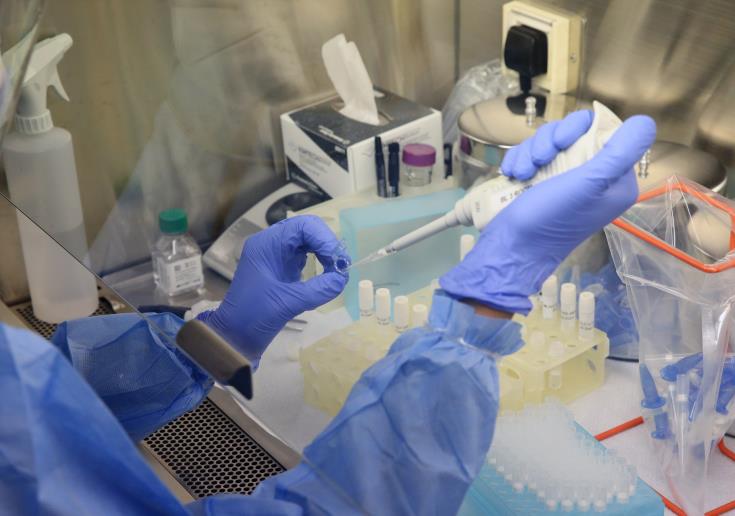Health authorities are drafting a response plan for a possible outbreak of monkeypox in Cyprus, including a vaccination rollout.
Health Ministry officials on Tuesday are to exchange views with epidemiological and pharmaceutical experts on how to tackle the possible spread of the Monkeypox virus in Cyprus.
Talking to state TV CyBC, the Director of Medical Services, Dr Elisavet Constantinou, confirmed that authorities were to draw up a national strategy to counter the appearance of the virus.
“We will be looking at how health services will manage possible cases, tracking issues, the isolation process for cases and contacts, and the need for laboratory diagnosis, while entry points to the republic could be a concern,” said Dr Constantinou.
Asked if authorities are thinking of introducing PCR type diagnostic tests for monkeypox, Constantinou said scientists abroad are already working on developing a PCR test.
“We have our thoughts, but meetings must be completed, and the political leadership will take any decisions.”
Constantinou was asked if there were any recommendations from the European Commission to prepare a smallpox vaccination plan; she said there were no vaccines in Cyprus that could cover monkeypox, but the issue had been raised.
She said EU member states are waiting for recommendations from the World Health Organisation and the European Centre for Disease Control (ECDC).
Constantinou said the evidence suggests that monkeypox will not develop into a pandemic like COVID, with authorities resorting to restrictive measures.
Since May, according to the World Health Organisation (WHO), cases of monkeypox have been reported in 12 countries where monkeypox is not endemic.
The United States, Australia, Canada and at least nine European countries have recorded cases of the disease, which derived its name because it was first detected in monkeys.
No deaths have been recorded so far.
The UK, Portugal and Spain are among the worst hit in Europe.
Other nations that have reported cases are Belgium, France, Germany, Netherlands, Italy, and Sweden.
Reported cases so far have no established travel links to endemic areas.
Based on currently available information, cases have mainly but not exclusively been identified among men who have had sex with men (MSM) seeking care in primary care and sexual health clinics.
The Health Ministry will be sending out instructions to doctors and hospitals to deal with possible monkeypox cases.
Symptoms can appear within 12 to 21 days after being infected, including fever, joint and muscle pains, while a rash spreads through the body.
In Africa, where this disease is endemic, the mortality rate is up to 10%.










